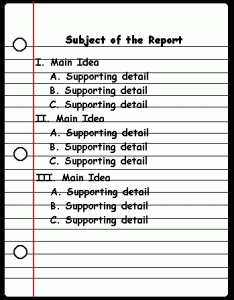Have an Agenda and Follow it. This first one might seem like a no-brainer, but it’s more important than you might think. I attended a business networking meeting as a guest recently, taking the place of a friend who was on vacation. At first I was delighted to see that they were using an agenda, but soon noticed that they weren't following it. A bit confused, I asked the person to my left, where we were on the agenda. His response was “We don’t usually follow it.” So I have to ask, why waste paper and ink if you don’t follow your agenda? Don’t risk losing credibility by ignoring details.
Successful Meetings: How to Plan, Prepare, and Execute Top-Notch Business Meetings
Start, Stay, and Stop on Time. It can be very tempting to start a meeting a little late to accommodate late arrivals or because you’re not ready to start, but you owe it to those who showed up on time to give them what you promised. Some attendees may even feel resentful if you don’t start on time. And even if there is great discussion going on at the end of the meeting, interrupt if for a moment to officially close the meeting so those who need to leave can do so, and invite those who want to remain and chat, to keep the conversation going.
Clearly Explain All Things. Never assume that everyone present knows what to do or what you’re talking about. I've been to meetings in which forms, phrases, names, or terms are mentioned, assuming that everyone knows. Take a few minutes at the beginning of your meeting to review procedures and processes. You may have guests, new members, or even folks who just haven’t come in a while so don’t be afraid to review. Your attendees will really appreciate it.
Provide Adequate Breaks if Possible. If you’re meetings run longer than 90 minutes, it’s very courteous to insert short breaks for networking, to allow people to check messages, or to use the facilities. If you promote people meeting each other, they aren't going to do that sitting in their chair listening to the speaker. One business meeting I attended included promises that we were going to meet our next business partner there, yet the organizers did not include any opportunities to meet others in the audience.
Create Atmosphere. Any marketing experts will tell you that it’s not really the coffee that packs the Starbucks stores. Instead, it’s the atmosphere that does it; the music playing over the speakers, the smell of the products, the attractive décor and the chance to relax with a beverage or converse with a friend. Holding your meeting in a cold gymnasium with metal folding chairs won’t necessarily inspire people to attend. Dig deep to figure out what changes you can make to your meeting atmosphere.
Participation and Fun. Finally, how can you engage your attendees in such a way that make them feel like they were truly a part of the meeting. People don’t want to sit and be spoken to the entire time. What activities can you implement that help people feel like contributors and in a fun way. Could you give away prizes, host a raffle, organize a contest, or some other activity that make your attendees feel important, and at the same time, allow them to have fun. When people are given opportunities to actively contribute, they feel a sense of satisfaction that they helped make the event a success. Look for unique ways in which your attendees can offer ideas or voice their opinions.


















